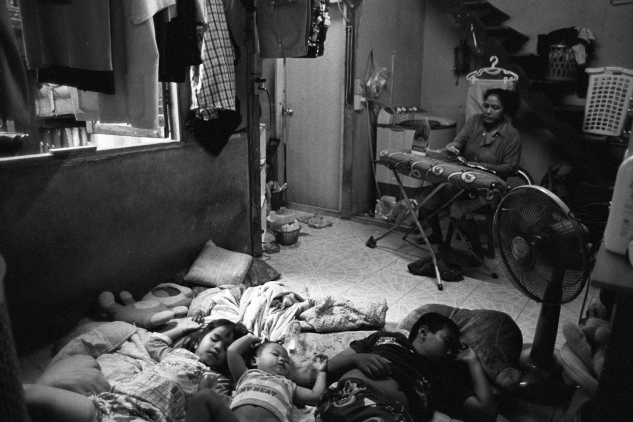
Prevention – the first line of defence against human trafficking
Over 20 million people globally are victims of human trafficking and forced labour. In August 2013 the UK Home Secretary declared this issue a personal priority and a draft Modern Day Slavery bill was hastily published by December, outlining the government’s blue-print for the UK’s approach to ending human trafficking.
This ambition and urgency is to be applauded, however by focusing almost exclusively on pursuing and prosecuting the perpetrators of human trafficking, the draft Bill overlooks many practical steps we can and should be taking to protect victims and to prevent trafficking before it ever happens.
The ‘three Ps’ of prevention, protection and prosecution first set out in the UN Human Trafficking Protocol (2003) are the cornerstone of an effective response to human trafficking. From the Netherlands to Thailand this fundamental ‘three P’ approach has been applied as an unprecedented number of governments have adopted this international Protocol. Of the three, prevention is unquestionably the first line of defence – if people can be prevented from entering exploitative situations then the other two ‘Ps’ become redundant.
The draft Modern Slavery Bill largely overlooks prevention, but as FLEX sets out this week, a comprehensive plan to prevent trafficking for labour exploitation could stop many of the estimated thousands of victims of this crime annually in the UK from ending up victims at all.
Effective prevention means acknowledging, as the International Labour Organisation states, that ‘labour inspectors in particular are well placed to provide early warnings’. Such ‘early warnings’, require a strong labour monitoring role. The UK Gangmasters’ Licensing Authority’s (GLA) goes some way towards this. Its primary function is to issue licences to ‘gangmasters’ and monitor compliance, and by doing this it is able to gather a wide database of information about the treatment of workers in those sectors it monitors. When gangmasters do not comply, it has the power to revoke licences with immediate effect.
In 2012, for example, DJ Houghton Ltd – a gangmaster providing workers to Noble Foods, one of the UK’s largest processors of eggs and chickens – failed 18 of the GLA’s separate licensing standards. 29 Lithuanian men had been found to have been ‘treated like slaves’ when put to work as chicken catchers by DJ Houghton Ltd. The gangmasters’ license was immediately revoked by the GLA, which earlier this month awarded DJ Houghton the dubious accolade of ‘worst UK gangmaster ever’ for their ‘prolonged and disgraceful’ exploitation of workers.
The GLA is the only pro-active UK labour inspectorate working to prevent and identify incidences of trafficking for labour exploitation and yet its core licence monitoring function is under threat. Its 2013 Strategy sees it moving away from ongoing ‘early warning’ identification through licence monitoring, limiting it to addressing serious organised criminal cases. This supports the government’s focus on prosecutions through the draft Modern Slavery Bill, but threatens to detract from the GLA’s strong intelligence led prevention role.
While the GLA has had some major successes through pro-active licence monitoring it has one hand tied behind its back as the labour sectors in which it operates are so strictly limited. Whilst agricultural sectors fall within the scope of the GLA and are therefore monitored for the risk of exploitation to their workers, sectors such as construction, cleaning, care and hospitality, also considered ‘high-risk’, fall outside the GLA’s remit. Many suspect, therefore, that ‘gangmasters’ seeking to exploit vulnerable workers for profit now choose their sectors strategically – placing workers in those areas where gaping prevention and protection holes in the UK’s labour inspectorates exist.
FLEX and others working in the field of human trafficking, support strong efforts to tackle this crime. However, too often politicians and activists eager to abolish ‘modern day slavery’ demonstrate a desire to ‘unchain’ or save victims from their enslavement, that focuses on the end point, rather than the beginning of the trafficking process. A more victim-centred response would take the lower-profile but more effective steps to prevent victims from being enslaved in the first place: ensuring prevention includes strong labour inspectorates, that focus on upholding workers rights, and closing the myriad cracks in to which exploited workers can currently fall.
Published in Huffington Post
